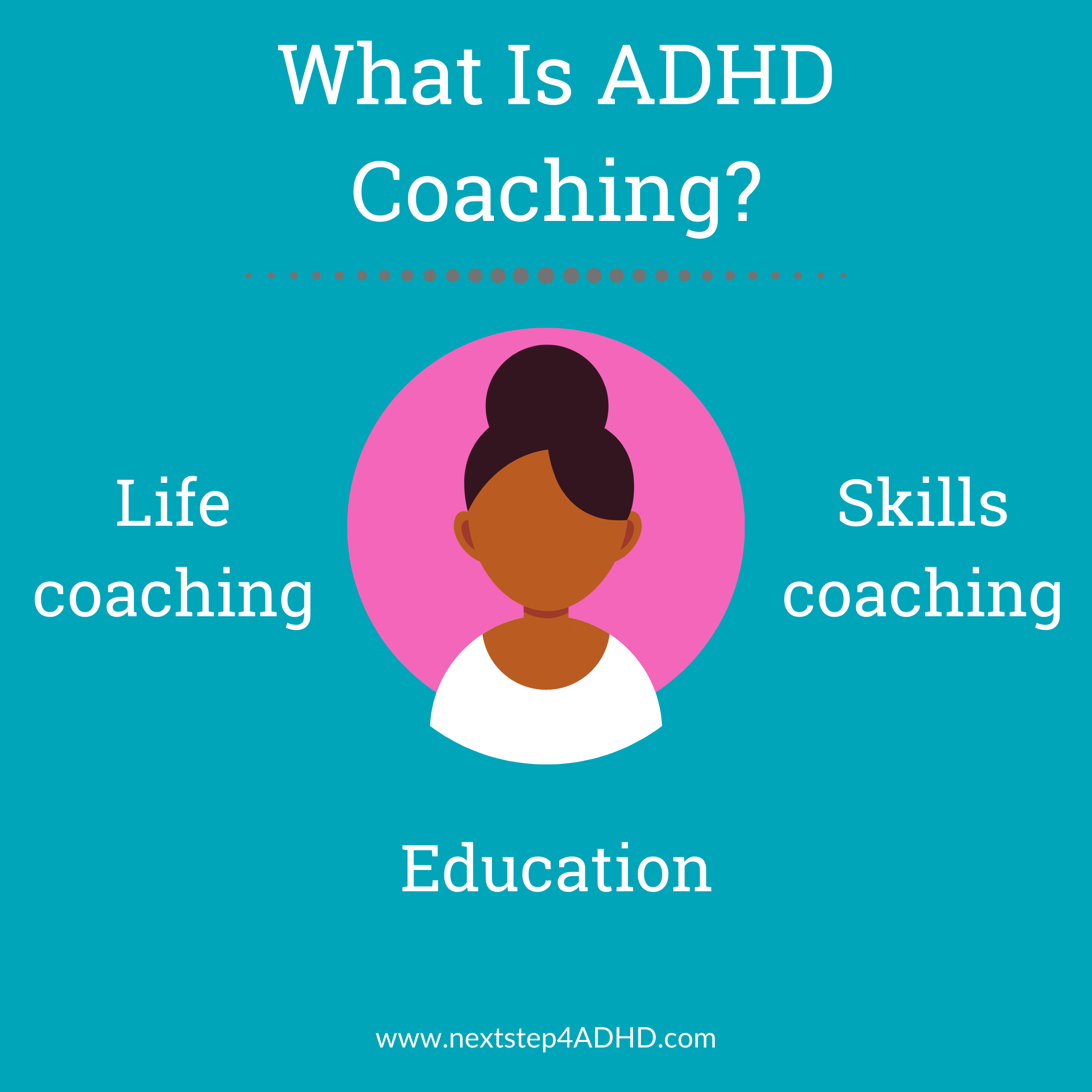Adult ADHD: Next Steps After Self-Diagnosis

Table of Contents
Seeking Professional Evaluation for Adult ADHD
Suspecting you have Adult ADHD is only the first step. A proper diagnosis from a qualified healthcare professional is essential for accessing appropriate treatment and support.
Finding the Right Healthcare Professional
Choosing the right professional is key to a successful diagnosis and treatment plan for Adult ADHD. Different healthcare providers offer varying levels of expertise and treatment options.
- Psychiatrists: These medical doctors specialize in mental health and can diagnose ADHD and prescribe medication, often the first line of treatment for many adults with ADHD.
- Psychologists: Psychologists are experts in mental health and behavior. They can provide therapy, such as Cognitive Behavioral Therapy (CBT), to help manage ADHD symptoms and develop coping mechanisms. They may also conduct assessments, but typically don't prescribe medication.
- Neuropsychologists: These specialists conduct comprehensive neuropsychological testing to assess cognitive functions and identify the presence and severity of ADHD symptoms. This testing can be invaluable in understanding the specific cognitive challenges associated with ADHD.
- General Practitioners (GPs): While GPs can offer initial assessments and provide referrals to specialists, they may not have the extensive expertise needed for a definitive ADHD diagnosis.
Preparing for Your Appointment
To maximize the effectiveness of your appointment, gather essential information beforehand. This preparation helps ensure a thorough evaluation.
- Detailed History of Symptoms: Document specific symptoms you’ve experienced, noting when they started, their frequency, and their impact on your daily life. Include examples of inattentiveness, hyperactivity, impulsivity, and any other relevant symptoms.
- Examples of Daily Challenges: Provide concrete examples of how these symptoms affect your work, relationships, and daily routines. This will help the professional understand the functional impact of your symptoms.
- Family History of ADHD: A family history of ADHD can increase the likelihood of diagnosis, so noting this information is beneficial.
- Relevant Medical History: Include details about any other medical conditions you have, as well as any medications you're currently taking. Some medications can mimic or mask ADHD symptoms.
- Questions about Diagnostic Tools and Treatment Options: Prepare a list of questions to ask your healthcare provider. This shows initiative and ensures your concerns are addressed.
Understanding the Diagnostic Process
Diagnosing Adult ADHD typically involves a multi-faceted approach:
- Clinical Interview: The professional will conduct a thorough interview to discuss your symptoms, medical history, and personal experiences.
- Questionnaires: Standardized questionnaires, such as the Adult ADHD Self-Report Scale (ASRS), are used to assess the presence and severity of ADHD symptoms.
- Neuropsychological Testing (in some cases): This comprehensive testing may be used to assess cognitive functions like attention, memory, and executive function. It helps differentiate ADHD from other conditions.
A comprehensive evaluation is crucial for an accurate diagnosis, ruling out other potential conditions and tailoring treatment effectively.
Exploring Treatment Options for Adult ADHD
Effective management of Adult ADHD often involves a combination of strategies.
Medication for Adult ADHD
Medication is a common and effective treatment option for many adults with ADHD. Several types of medication are available:
- Stimulants: These medications, such as methylphenidate (Ritalin, Concerta) and amphetamine (Adderall, Vyvanse), increase the levels of dopamine and norepinephrine in the brain, improving focus and attention.
- Non-stimulants: Atomoxetine (Strattera) is a non-stimulant medication that works differently than stimulants but still effectively manages ADHD symptoms.
It's vital to work closely with your psychiatrist to find the right medication and dosage, and to monitor for and manage potential side effects.
Therapy for Adult ADHD
Therapy plays a significant role in managing Adult ADHD. It provides coping strategies and addresses the underlying challenges.
- Cognitive Behavioral Therapy (CBT): CBT teaches techniques to improve focus, organization, and self-regulation.
- Coaching: Life coaching helps develop strategies for time management, goal setting, and emotional regulation.
- Addressing Co-occurring Conditions: ADHD often co-occurs with other conditions such as anxiety and depression. Therapy addresses these issues comprehensively.
Lifestyle Changes for Adult ADHD
Lifestyle modifications significantly impact symptom management.
- Regular Exercise: Physical activity improves focus, mood, and sleep.
- Healthy Diet: A balanced diet provides the nutrients needed for optimal brain function.
- Sufficient Sleep: Consistent sleep is crucial for cognitive function and emotional regulation.
- Mindfulness and Stress Reduction Techniques: Practices like meditation and yoga can improve focus and reduce stress levels.
Building a Support System for Adult ADHD
Living with Adult ADHD can be challenging, and building a strong support system is crucial for success.
Finding Support Groups and Online Communities
Connecting with others who understand the challenges of living with ADHD provides invaluable support.
- Sharing Experiences and Coping Strategies: Support groups offer a safe space to share experiences and learn from others.
- Reducing Feelings of Isolation: Connecting with others combats feelings of loneliness and isolation often experienced by individuals with ADHD.
- Finding Encouragement and Support: Support groups provide encouragement and a sense of community.
Involving Family and Friends
Educating loved ones about ADHD helps them understand your challenges and provide effective support.
- Explaining ADHD Symptoms and Challenges: Clearly explaining your experiences helps them empathize and offer appropriate support.
- Seeking Understanding and Patience: Requesting understanding and patience can improve your relationships and reduce conflict.
- Collaborating on Strategies for Managing Daily Life: Working together on strategies improves overall success in managing daily life.
Conclusion
Self-diagnosing Adult ADHD is a starting point, but professional evaluation is vital for accurate diagnosis and effective treatment. This involves finding a qualified healthcare professional, undergoing a thorough assessment, and exploring various treatment options—medication, therapy, and lifestyle changes. Building a strong support network through support groups and family/friends is equally important. Taking these steps after suspecting you have Adult ADHD empowers you to manage your symptoms effectively and improve your overall quality of life. Don't delay – take the next step towards managing your Adult ADHD today.

Featured Posts
-
 Revealing The Mechanisms Behind Ais Apparent Thought
Apr 29, 2025
Revealing The Mechanisms Behind Ais Apparent Thought
Apr 29, 2025 -
 Remuera Incident Leads To Detention Of Du Val Founder
Apr 29, 2025
Remuera Incident Leads To Detention Of Du Val Founder
Apr 29, 2025 -
 Harvards Fight For Federal Funding Legal Showdown With The Trump Administration
Apr 29, 2025
Harvards Fight For Federal Funding Legal Showdown With The Trump Administration
Apr 29, 2025 -
 Louisville Congressman Accuses Usps Of Lack Of Transparency On Mail Delays
Apr 29, 2025
Louisville Congressman Accuses Usps Of Lack Of Transparency On Mail Delays
Apr 29, 2025 -
 Aiims Opd Sees Rise In Young People With Adhd Whats The Cause
Apr 29, 2025
Aiims Opd Sees Rise In Young People With Adhd Whats The Cause
Apr 29, 2025
